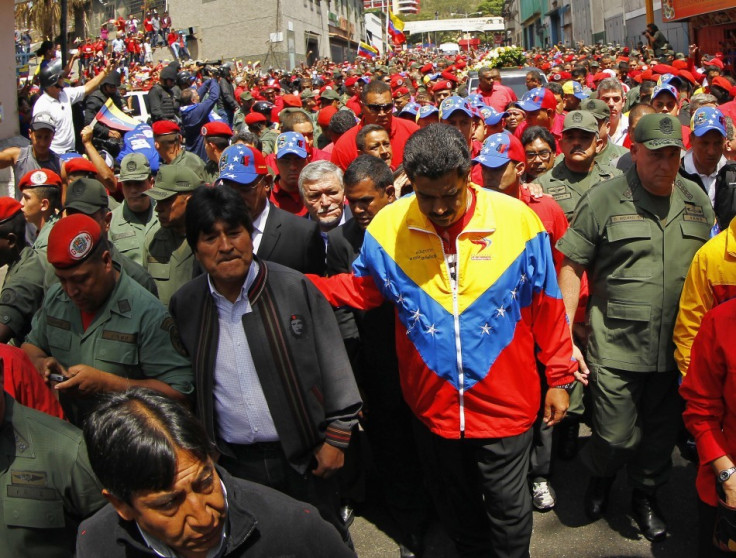Hugo Chavez: A Dangerous Legacy

Fourteen years of political polarisation in Venezuela, of love and hate between opponents and supporters of the Bolivarian Revolution, have not ended with the death of President Hugo Chavez, whose death has left his country an orphan because most of its population considered him a father, protector, and hero.
The Venezuelan government's decision to embalm the body of Chavez, to be exposed to his people "for all eternity" like other socialist leaders such as Lenin, Mao Tse-tung and Evita Peron, demonstrates their desire to oversee a smooth transition and ensure their party continues to ride the crest of his popularity. But, in reality, Chavez's death has left his country in a critical and potentially dangerous state of flux.
The fourteen years of "revolution" were propped up by the flow of petrodollars, but this has now been stymied by an unprecedented decline in oil production levels. According to analysts, this increased from 3.5 million barrels per day (bpd) when Chavez was elected, to 2.3 million bpd currently.
In the ledger against Chavez, one can also add the marked fall in industrial activity, the uncertainty in the markets, the fall in foreign investment, high rates of violence in Caracas and shortages of the most basic items. All of these issues still remain.
The next president, be it Nicolas Maduro, to whom Chavez bequeathed his entire political and ideological legacy, or Henrique Capriles, the opposition candidate, will have to tackle each of these problems under Chavez's looming shadow; every time they speak in public, the face of El Comandante will be staring down in silent judgement from a billboard or poster.
The current election campaign, the shortest in the history of Venezuela, has already clearly demonstrated the polarising effect of Chavez and his cult of personality. The class hatred which has been bubbling for years has reached new levels, and its combatants are firmly aligned on political lines; those who believed in Chavez's utopian brand of "21st Century Socialism" and cared little about whether his economic model was viable or not, are arrayed against the pragmatists who believe the results of Chavez's revolution make a mockery of its objectives.
No-one really knows what sort of country will emerge from the current vacuum. For many Venezuelans, especially for those who left their homeland, this is a golden opportunity to change course; for others, the Chavismo flags will now be more alive than ever and the 'Bolivarian Revolution' can continue on Maduro's hands. Whatever happens, the transition is bound to be turbulent and blighted by considerable dissent.
On 14 April, the Venezuelans will go to vote and their fate will be in their hands. As the blind said, let's see.
Johanna Quintanilla Pachon is a former official in the Colombian government.
© Copyright IBTimes 2025. All rights reserved.





















